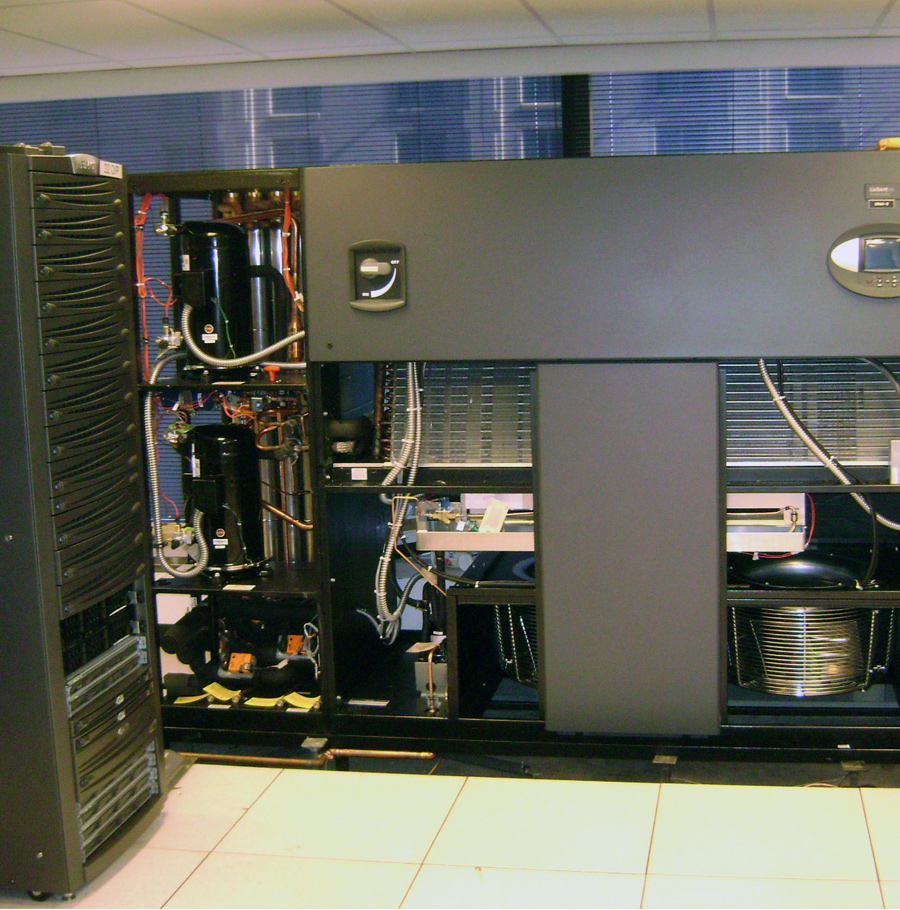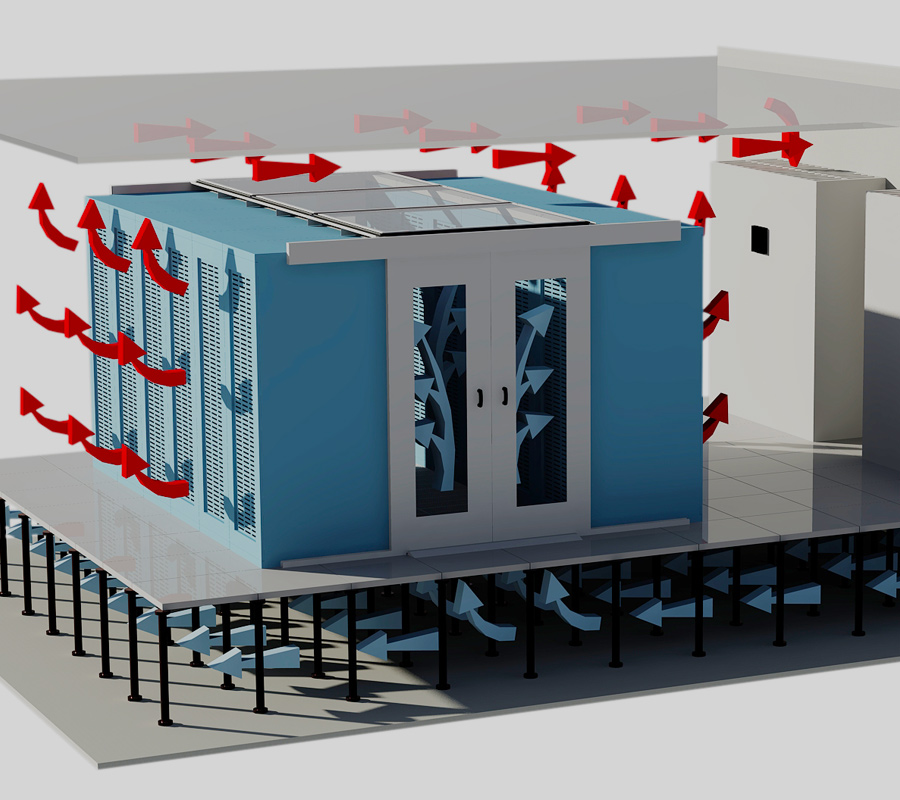We promise to deliver a well designed, cost-effective comprehensive service experience tailored to your facility's equipment and needs. Please measure our performance by the reliability we deliver and the energy we save. Please consider Energy Benchmarking your facility BEFORE giving us an oppportunity to serve you.
24 Hour Service Support
Devine Brothers will be there for you in any service emergency. Our focus is to create, with you, a service methodology with effective scheduling that reduces all avoidable emergencies

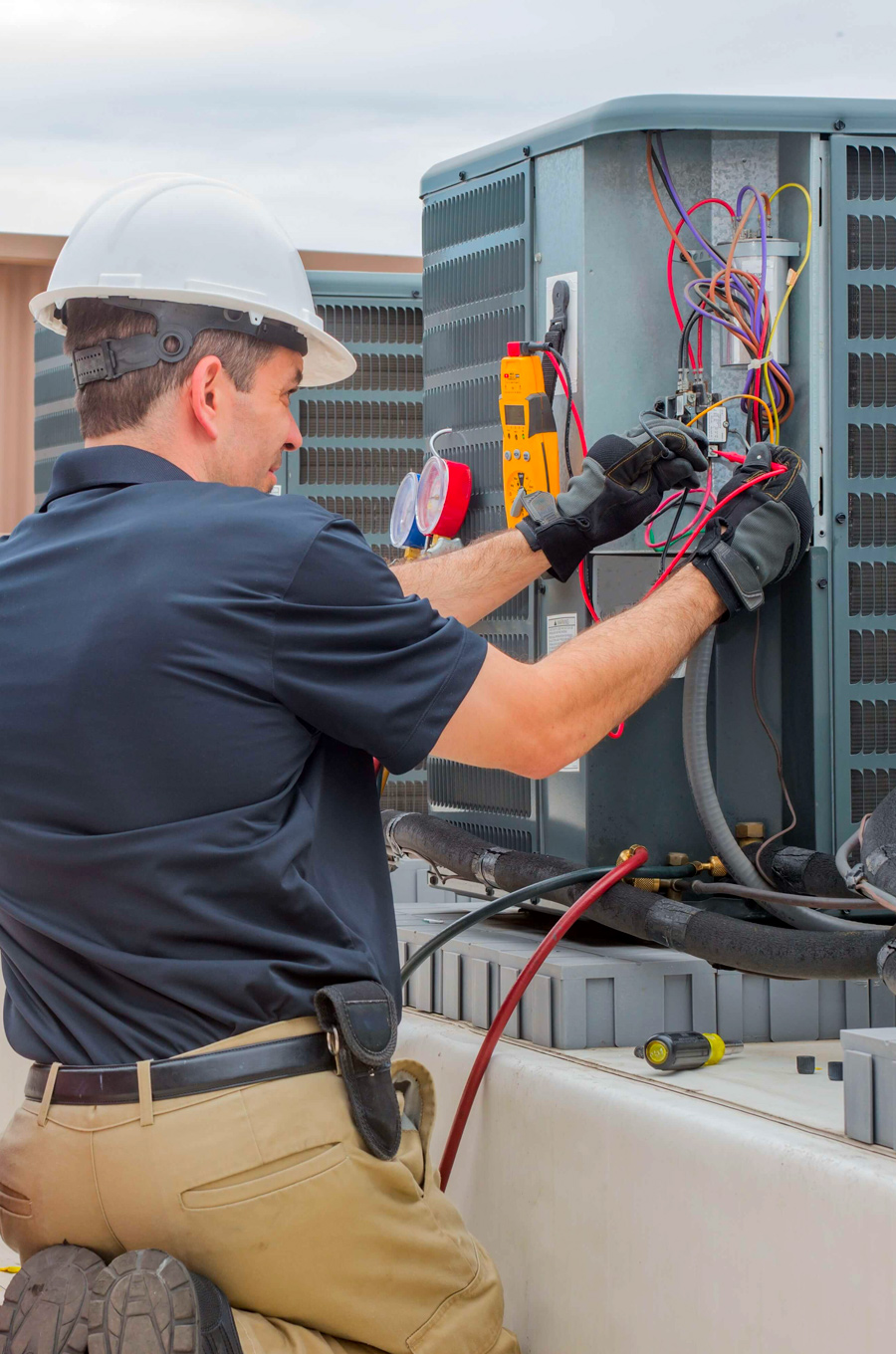
HVAC System Inspections and Maintenance
A commercial HVAC system can last between 15 and 25 years. In order to reach that life span without constantly having to repair your unit, it’s important to bring in a professional for annual maintenance.
During the tuneup, your HVAC technician will inspect the system and make sure it’s working properly. If anything is awry, he or she can perform minor repairs at the time instead of allowing the system to keep running, causing further damage that will require more extensive repairs. Maintenance can help this valuable system in your commercial structure reach its full life span.
Improves Efficiency
Another benefit of regular maintenance is improved efficiency. When a commercial HVAC system operates more efficiently, it uses less energy, which can help save money every month on heating and cooling bills. The HVAC system in a building can use more than half of the total energy, so it makes sense you’d want to limit waste as much as possible to keep your costs under control.
Ensures Clean, Healthy Air
Indoor air quality is a rising problem in commercial and residential structures, so it’s important for commercial building owners and managers to take steps to make sure the air flowing through the office is clean and healthy. As part of the maintenance, your technician should calibrate the control systems, inspect, clean, and service the system and replace any necessary components. Your system can operate more cleanly and efficiently, providing healthier air to breathe.
Boiler / Heat Exchanger / Pump Maintenance
Like changing the oil of your own vehicle every 6,000 miles, all heating equipment, both boilers and heat exchangers, require annual maintenance. No matter the life expectancy of a heating system, ‘WEAR & TEAR’ will eventually interfere with the performance of your heating equipment.
Annual maintenance and monthly water quality checks can prevent premature malfunctions and potential breakdowns caused by poor water quality, leaks or water pressure. Your boiler’s functionality can be easily compromised and the impact on energy efficiency can become a great expense for the end user.
The best practices to keep your boiler operating in peak condition are detailed below and are part of our comprehensive service offering for boiler annual maintenance. These steps will help maintain energy efficiency and potentially extend the life of your equipment.
- Inspect and replace as required all parts affected by wear and tear, every year!
- Inspect the fireside of the heat exchanger
- Remove the burner and thoroughly wash and clean the mesh
- Replace old igniter, flame rod and gaskets
- Select the right water treatment to prevent scale
- Re-start the equipment and adjust combustion using a calibrated analyzer
- Inspect electrical connection for corrosion
- Clean the condensate traps
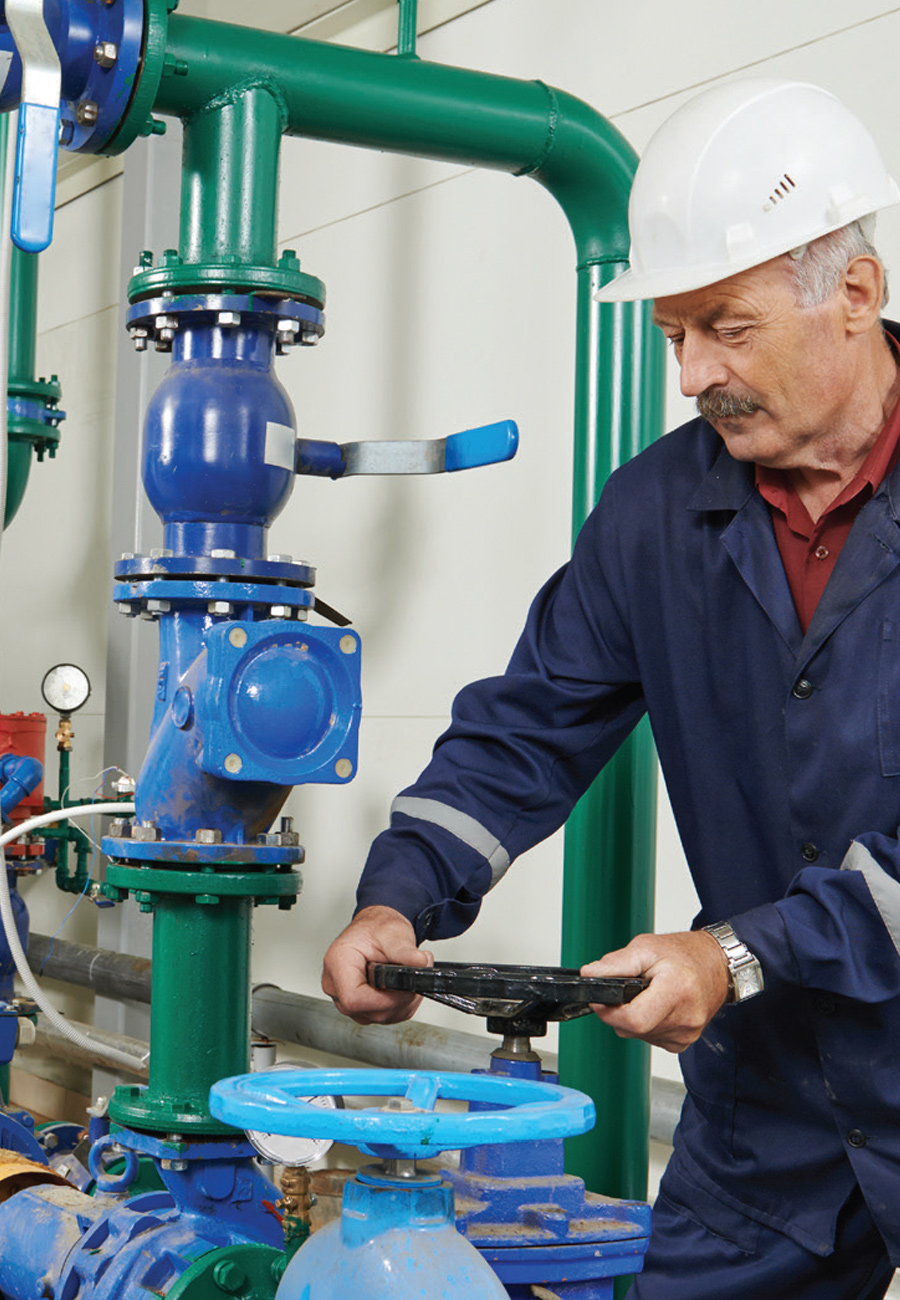
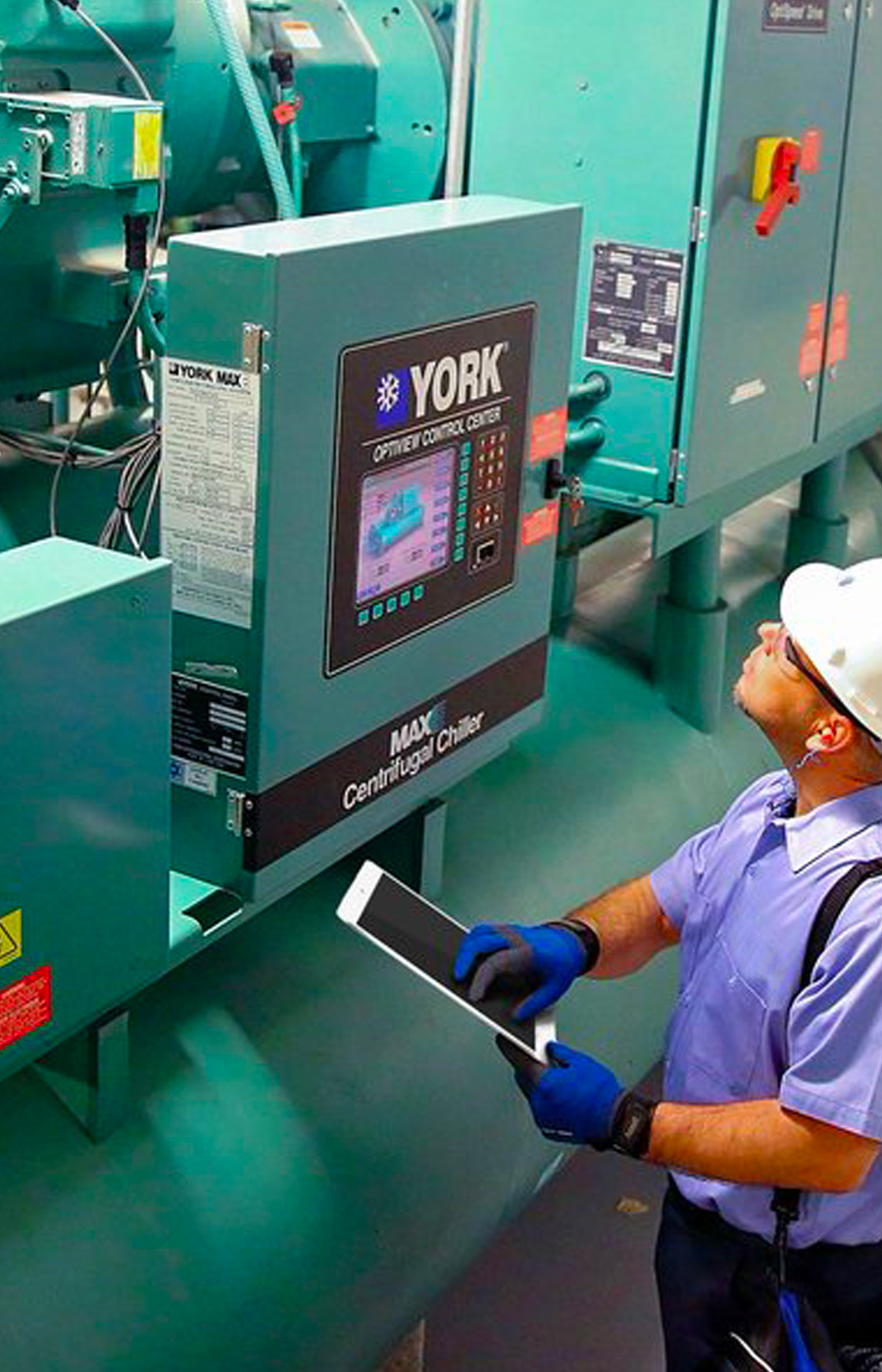
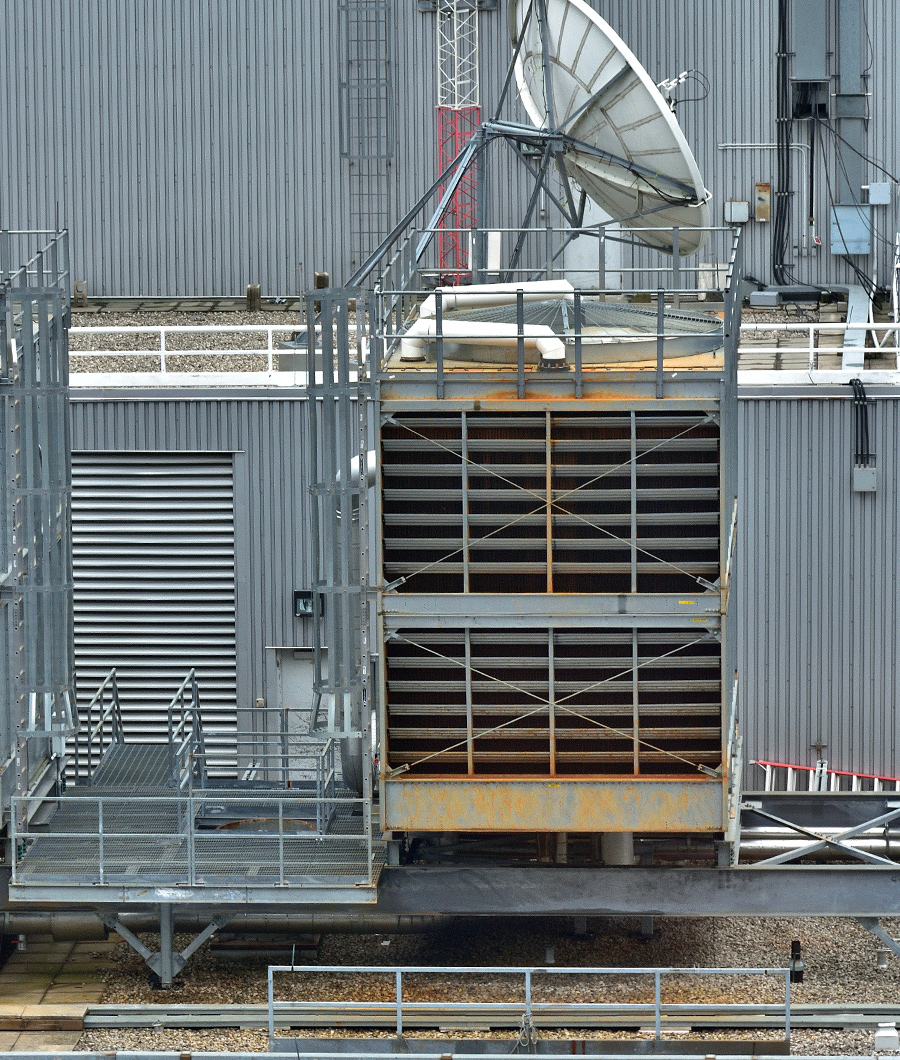
Chiller/ Cooling Tower/ Pump Maintenance
Your cooling towers and chillers are vital to the performance of any commercial or industrial air conditioning system! Properly maintained cooling towers and chillers keep condenser temperatures lower than un-maintained systems. This results in better energy efficiency, lower utility bill costs, and a more comfortable facility.
Here are the basics – our experience focuses our Service Plans on these key areas:
1. Remove Scale Deposits
Since your cooling tower works by evaporation, you will experience periodic buildups of scale deposits on your fill. Minerals in the water can create these deposits, especially if you’re experiencing water treatment issues. Limescale buildup can decrease the efficiency and performance of your HVAC system and can lead to premature deterioration of your unit. Descale your system at least once per year (twice for full year performance systems) to increase energy conservation and keep your monthly bills manageable.
2. Ensure Proper Airflow
Poor airflow is a common cause of air that doesn’t feel cold, poor fan performance, and even entire system breakdowns. Airflow interruptions can occur because of loose components, improper fan alignment, and lack of gearbox maintenance. Damage to your fan blades can also reduce airflow. Check your unit for debris within the tower or your fill. Your cooling tower may have sludge buildup on its basin floor that is blocking airflow. Use a tower vacuum to remove these contaminants. Adding a biocide can reduce the occurrence of bacterial and algae growth in your cooling tower.
3. Clean Your Tubes
Again, contaminants like mud, slime, algae, and scale can build up within your chiller tubes and cause a partial or total clog. Clogged tubes can lead to unit inefficiencies and breakdowns. How often you clean your tubes will depend on your water quality and rate of buildup. Every unit will experience buildup of some kind – it is the nature of the system. Clearing your chiller tubes of deposits regularly will prevent total blockages and make debris removal easier.
4. Inspect All Pumping Systems and Controls
Chiller systems rely on a water pumps to carry warmer water to the chiller for cooling. Efficiency during the pumping process can greatly increase the performance of your air conditioning, as well as save on monthly energy bills. A well-maintained pump system will not have to work as hard to move water back and forth, making operation easier on your unit and increasing its life span. Inspect your pump system and check to see if it is operating at proper system pressures. Your pumps should run proportional to your system load. Lubricate your pump and motor bearings on a periodic schedule as well as the water seal(s).
5. Treat Your Water
Chiller systems rely on a water pumps to carry warmer water to the chiller for cooling. Efficiency during the pumping process can greatly increase the performance of your air conditioning, as well as save on monthly energy bills. A well-maintained pump system will not have to work as hard to move water back and forth, making operation easier on your unit and increasing its life span. Inspect your pump system and check to see if it is operating at proper system pressures. Your pumps should run proportional to your system load. Lubricate your pump and motor bearings on a periodic schedule as well as the water seal(s).
Plumbing / Backflow Testing, Certification, and Repair
A backflow prevention assembly prevents the water in your system from flowing back into the public water system. In a commercial or industrial building, the backflow assembly should be tested annually to ensure the safety of our drinking water. A failed building inspection can cost you much more than the cost of getting a backflow installed properly and tested regularly.
The Pennsylvania State Plumbing Code requires backflow preventers to be installed in all commercial buildings. This protects the community water supply from contamination and pollution. The Pennsylvania Code - Title 25, Chapter 109 (the Commonwealth of Pennsylvania's official publication of rules and regulations) details requirements for the property owner/tenant who is responsible for these devices, certification, testing and any charges resulting from the certification.
The results are then reported to the municipal water company; If your building needs a backflow preventer installed, this will require a permit issued to a Master Plumber and installation performed by a Journeyman Plumber, followed by inspection and certification.
At Devine Brothers, we have licensed, professional plumbing technicians to perform this work for your commercial building, and to ensure your inspections and certifications stay up-to-date each year. Devine Brothers offers scheduled or emergency backflow testing, repair and installation services. Our plumbers are available in your area, and fully-qualified to inspect, test and repair all backflow assemblies and devices. Learn about our commercial preventative maintenance program for all of your facilities plumbing infrastructure.
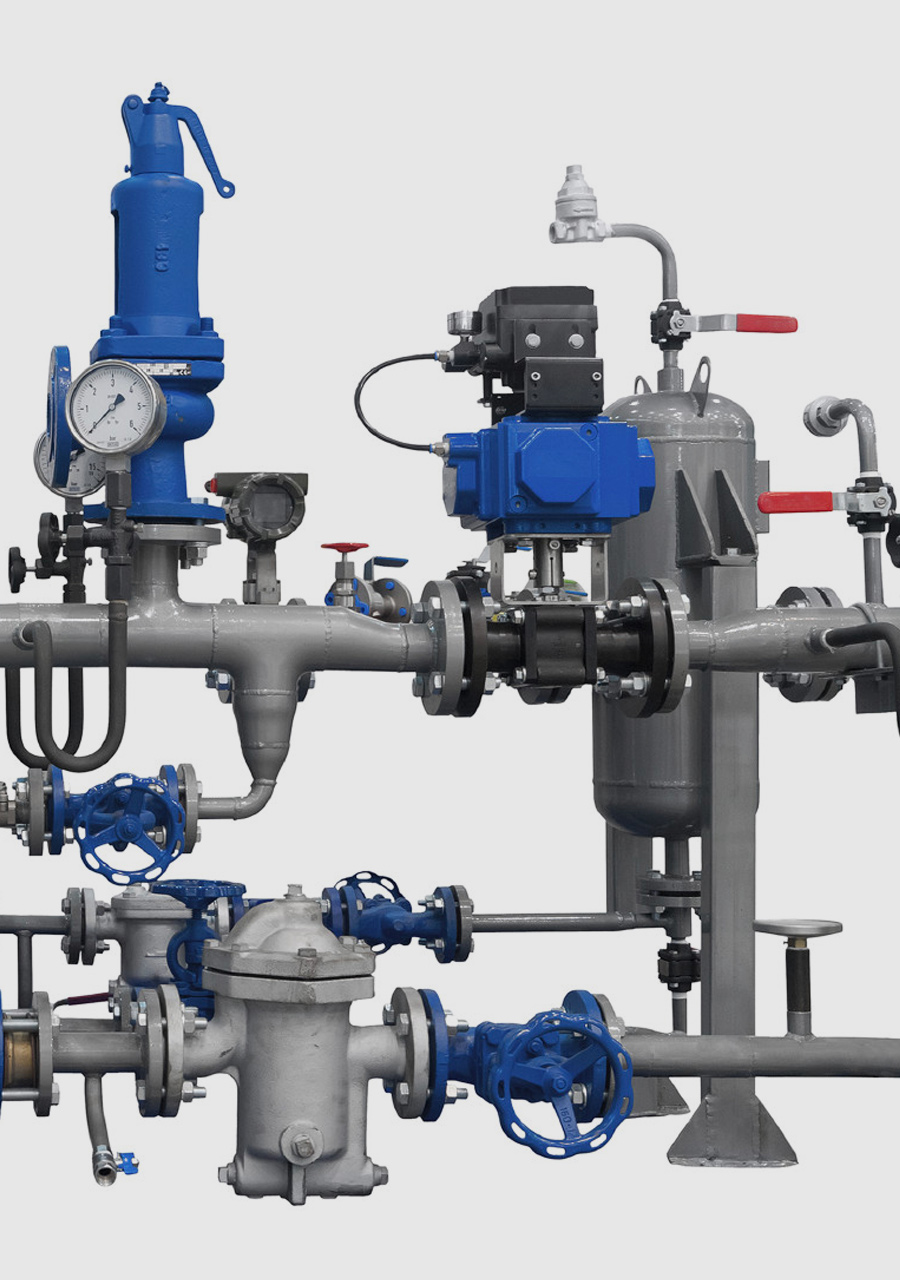
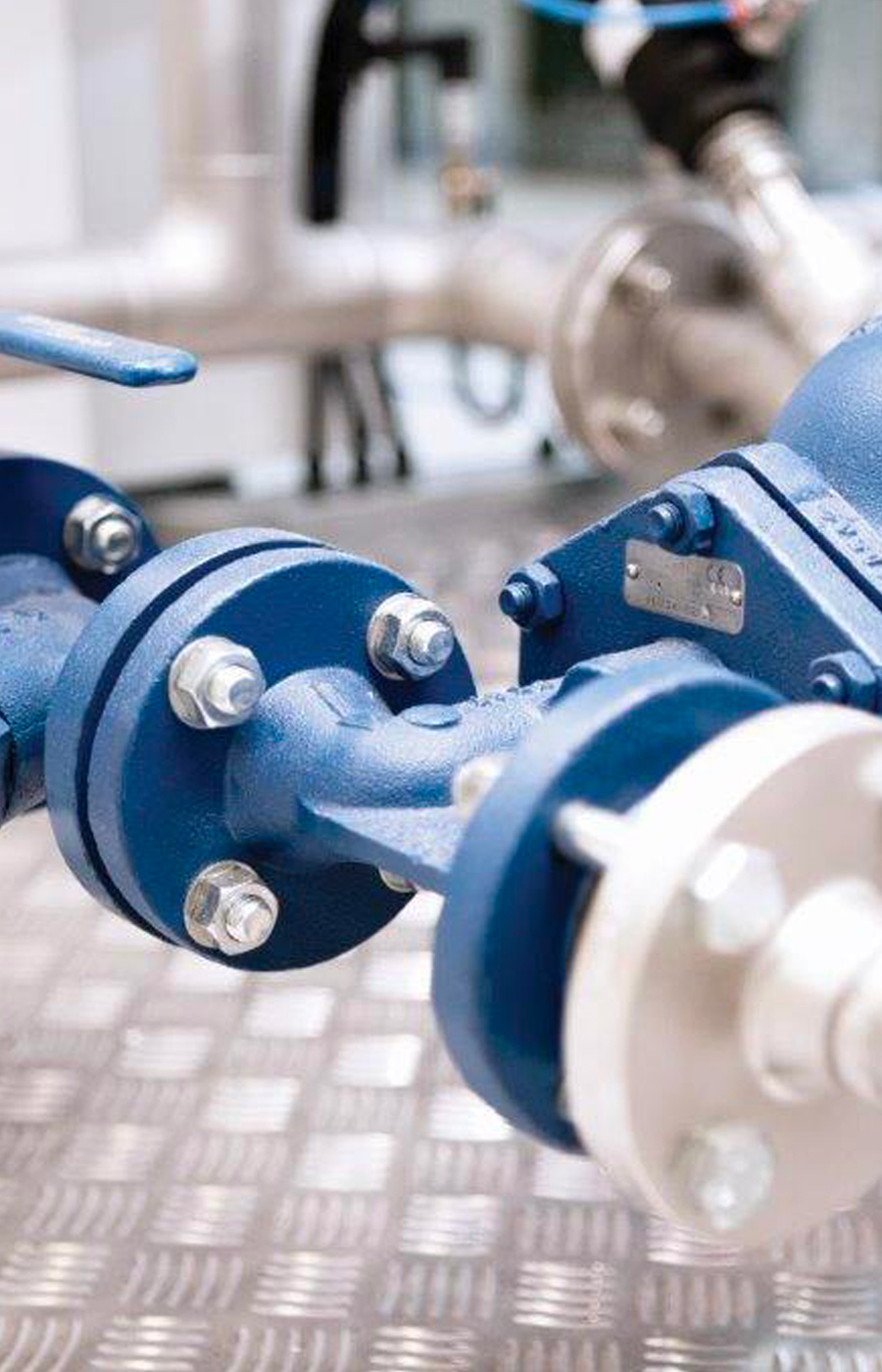
Steam Trap Maintenance in Commercial Facilities
Steam traps are designed to prevent the loss of the BTU power in heat distribution lines. With a 5 to 10% annual failure rate, they must be checked on a regular basis. A malfunctioning steam trap will allow steam to escape into the condensate system or drain line. If you have not maintained your steam traps for 3-4 years, you probably have over a 20% chance that you are losing thousands in energy loss and not even know it.Two of the most common causes of trap failure are oversizing and dirt. Oversizing causes traps to work too hard. Dirt build-up, which is normal, can cause plugging or prevent a valve from closing. Here are some general indications of steam trap failure:
- An abnormally warm boiler room – all the time
- Condensate being received in the venting steam
- Condensate pump water seals failing prematurely
- Over-heating or under-heating in conditioned space
- Boiler operating pressure is difficult to maintain
- Vacuum in return lines is difficult to maintain
- Water hammer in steam and condensate lines
- Steam in the condensate return lines
- Higher than normal energy bill on a year over year basis
- Inlet and outlet lines to trap nearly the same temperature
If you have reason to suspect that your steam traps might be failing, the next step is to test. You can do this by installing a test valve downstream, by using sound equipment to listen to the action of the trap, thermal imaging of operating traps or by measuring the temperature differential on the inlet and outlet of the trap. Our Preventive Maintenance programs are designed to cost effectively locate your problems and correct in a cost effective manner.
Computer Room Air Conditioners and Heat Rejection Systems
In facility data centers, proper selection of computer room air conditioner(s) (CRAC) is essential in the protection of sensitive servers and other IT equipment. It is just as important to maintain that CRAC to ensure your mission-critical data center remains at the appropriate temperature and that the cost of heat rejection does not escalate.
Preventive maintenance for CRAC’s is often disregarded until system behavior causes IT equipment malfunctions– however it is well worth the cost to invest in a monthly, quarterly or semi-annual maintenance program that includes both inspection and service. The key maintenance tasks that should be performed on CRAC units are well documented industry wide. A pathway to planning for maintenance that will not impact your users is important.
- Shut down the CRAC units for preventive maintenance when the outside air temperature is not excessive. Since most data centers tend to keep the room temperatures cooler than required, a CRAC unit could probably be turned off for preventive maintenance for a few hours without negatively impacting temperature levels. This is the best time to inspect the exterior heat rejection units for proper operation, clean fins and even temperature differentials
- Check the temperature and humidity levels of all CRAC units and record all operational readings. Set points for all units should be the same to save energy and rotation strategies should be implemented where excess capacity exists
- Change the filters per the manufacturer's recommendations, dirty filters reduce cooling capacity
- Check belt tensions and adjust as needed, maintaining factory parameters
- Check motor mounts and pulley set screw tightness
- Check for any atypical noise that could indicate potential problems and address quickly
- Check refrigerant levels on a yearly basis to identify leaks
- Make sure drain lines are clear with no buildup in pans
- Inspect condensate pumps for proper operation
- Check to see if humidifiers need to be replaced or reconditioned
- Record electrical readings to identify trends and potential problems
Our years of experience servicing Data Centers focused on meeting client monitoring, servicing and capacity planning needs are built into our customized preventive maintenance plans. Our service professionals understand the key components in your systems and the procedural controls required for all maintenance activities. Computer systems have not been around for a hundred years, but we have been servicing them since day one. Please give us a call and let us demonstrate our commitment to professional uptime focused maintenance.
